Sbaragli grabs chance to win Vuelta a Espana sprint
Italian upstages Degenkolb in Castellón
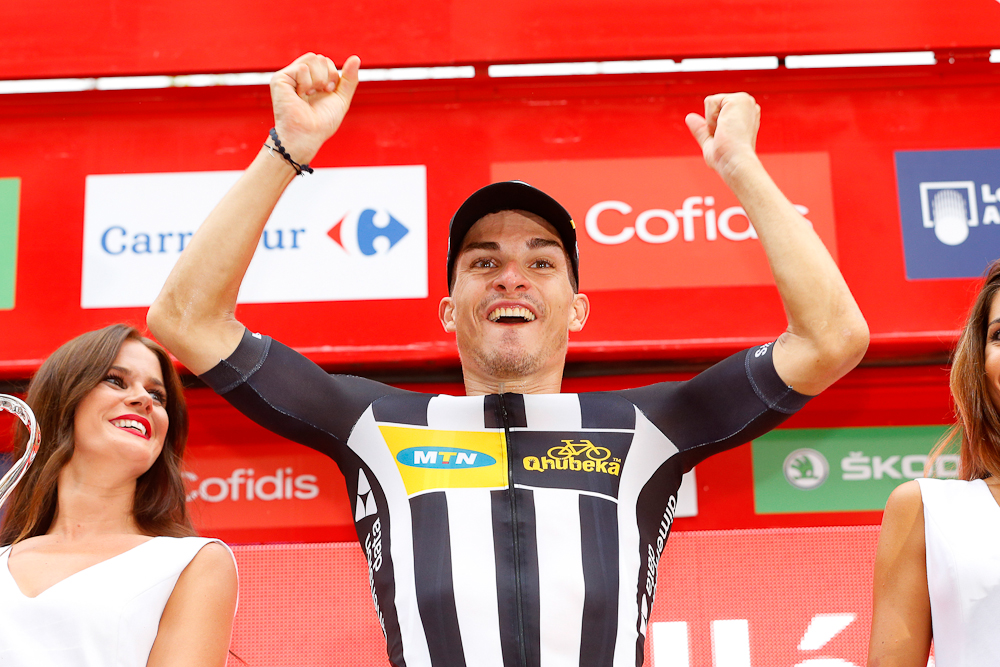
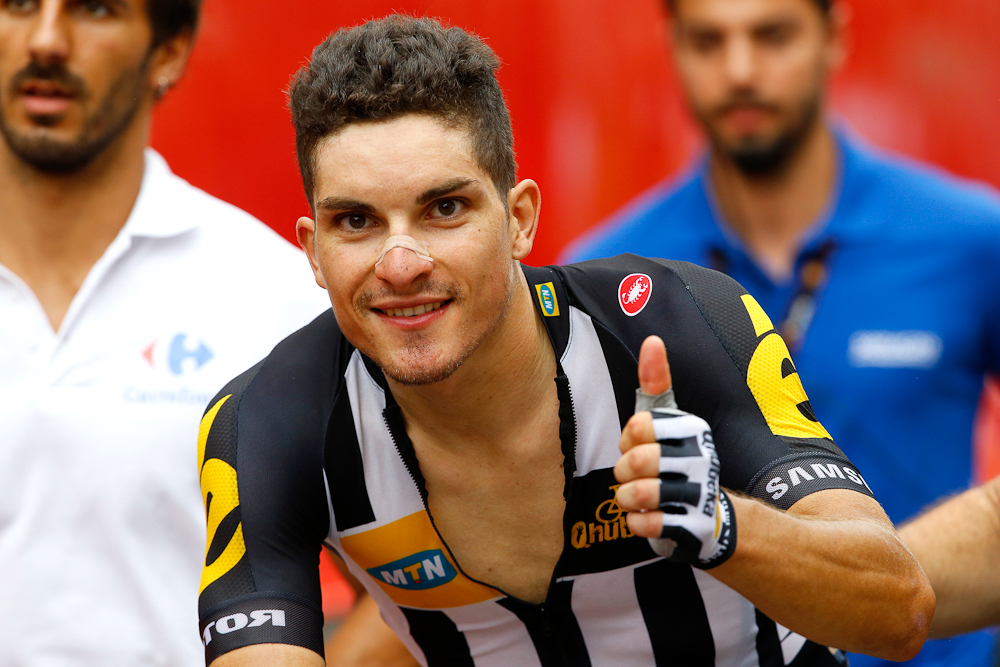
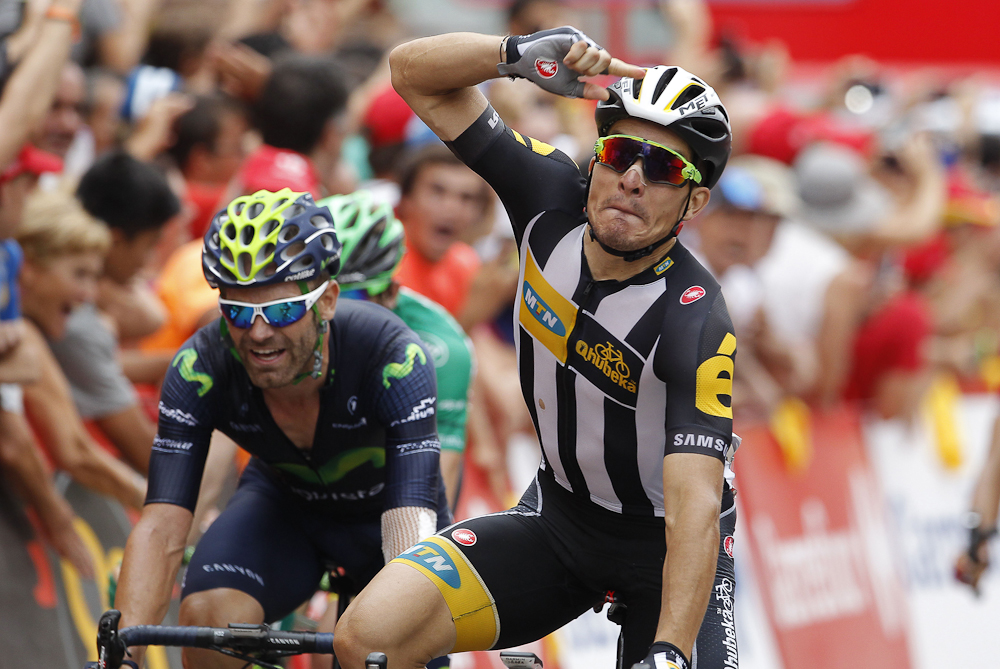
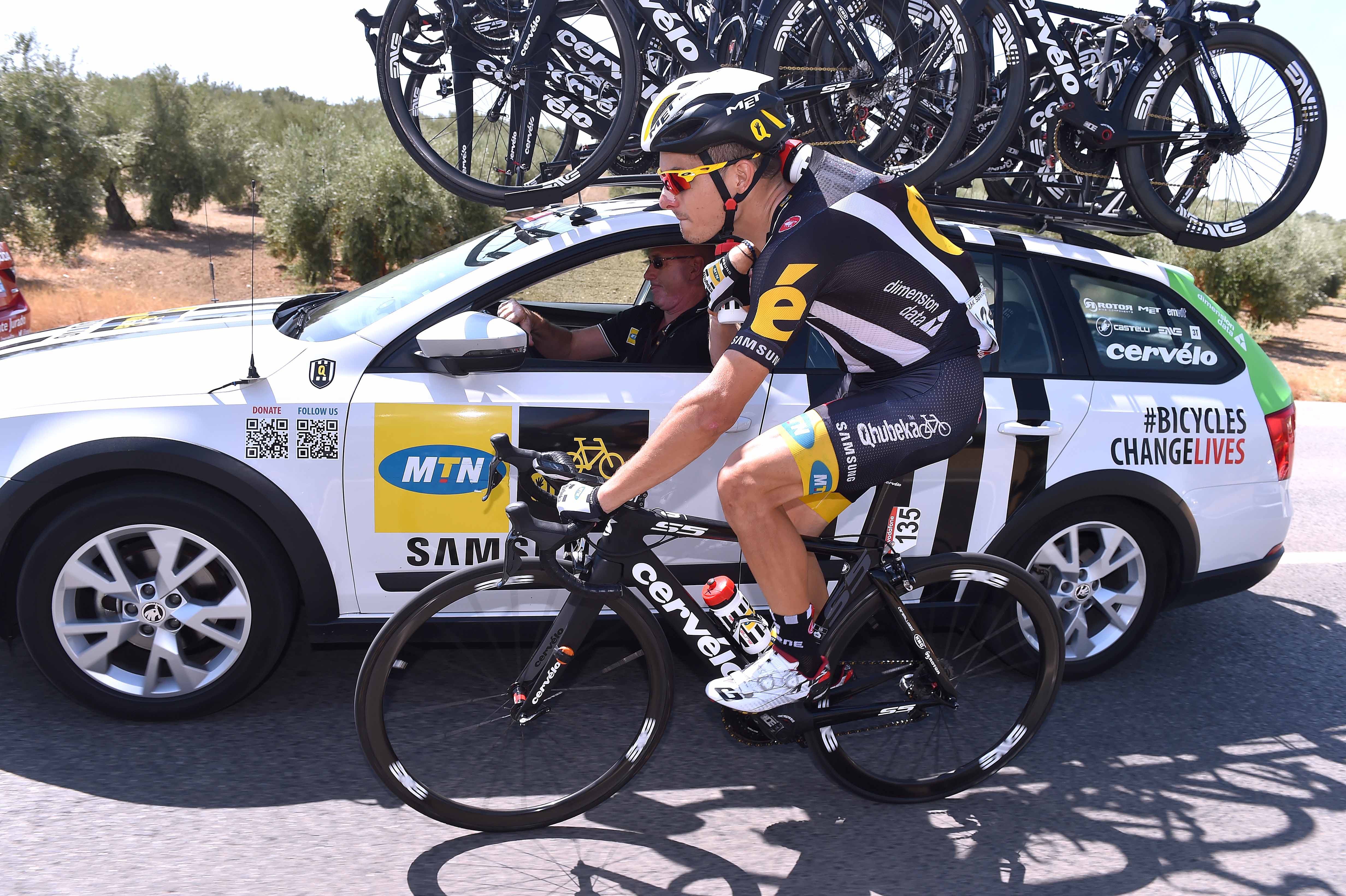
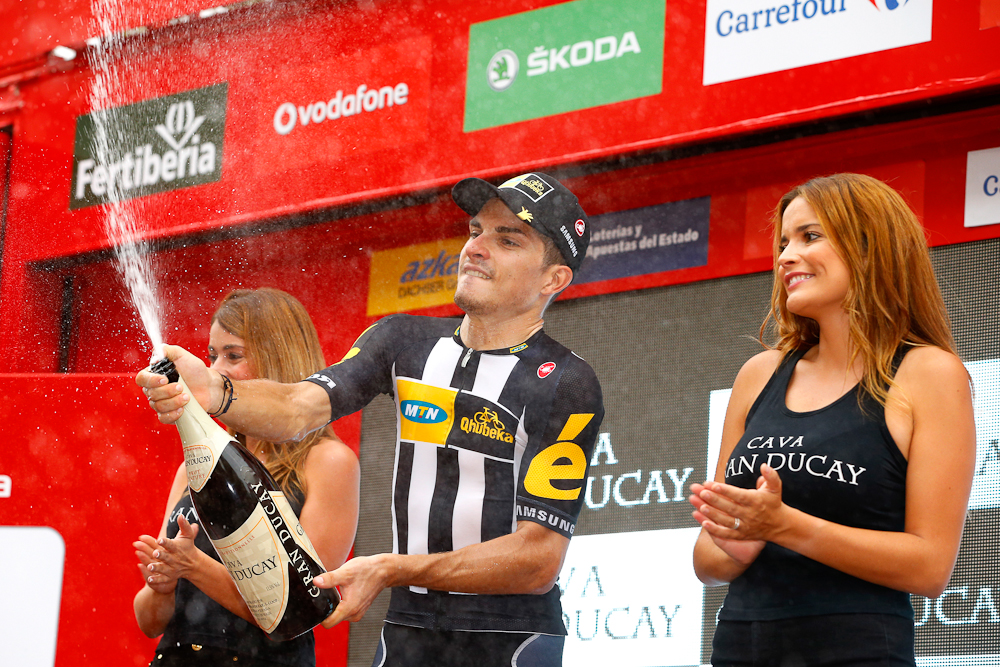
Anything can happen in a bunch sprint, and the Vuelta a España seems particularly partial to improvisation. The Giant-Alpecin squad had carefully assembled the backdrop for John Degenkolb as the 60-man leading group hurtled into Castellón on Monday, but this year’s Milan-San Remo winner was upstaged by Kristian Sbaragli (MTN-Qhubeka), the man who won the amateur equivalent, the Piccola Sanremo, four years ago.
It was Sbaragli’s first victory of the season and only his second as a professional all told, the first coming more than two years ago in the rather more modest setting of the Tour de Korea. Logic suggested that in the absence of Peter Sagan, Nacer Bouhanni and Caleb Ewan, Degenkolb would prove nigh on unbeatable in the final 200 metres, but he started his effort from too far back and had to settle for third.
“Honestly, when you line up for a sprint, anything can happen,” Sbaragli said. “I’ve finished second lots of times this year, I’ve been third and fourth, but this is my first win of the season. If you’d told me that I’d beat Degenkolb and Rojas, and above all stayed up there on that last climb when the group was reduced to 40 riders, I’m not sure I’d have believed you. But I’ve done it.
“Winning is never easy, there were riders who’d won Milan-San Remo and stages at the Tour, Vuelta and Giro. I’d never won anything like that so I didn’t think I was going to win, but I was confident I’d be up there.”
On the eve of the Vuelta’s first rest day, Monday’s short leg from Valencia north to Castellón initially looked set to be something of a transitional stage, but the tough ascent of the category 2 Alto del Desierto de las Palmas in the finale meant that the fast men would have to earn their opportunity. Giant-Alpecin, too, were eager to whittle down Degenkolb’s list of potential rivals still further, though as it turned out, their pace-making on the way up was equally beneficial to Sbaragli’s cause.
“I got over the climb pretty well,” the Italian said. “The speed was high but fortunately it was quite regular, so I knew I’d be able to stay on the wheels if that kept up. If the big guns had gone for it, it would have been impossible for me, but I managed to stay in the first 30 positions and I knew I’d be able to contest the win. But it’s a long way from contesting the win to actually winning.”
That journey was shortened somewhat for Sbaragli by the fact that Giant-Alpecin had used up so many men in chasing down the escapees that they had none left over to provide a lead-out for their leading man Degenkolb in the sprint. Left to ad lib, the remaining sprinters produced a rather chaotic sprint, and Sbaragli opted to take a punt on opening his effort early.
Get The Leadout Newsletter
The latest race content, interviews, features, reviews and expert buying guides, direct to your inbox!
“After the last corner, I was in 10th place near Degenkolb, but there were a lot of fast riders there. I felt good so I decided to go early, with 200 metres to go, and I just hoped that nobody would pass me,” said Sbaragli, who just held off a fast-closing Degenkolb on the line.
MTN-Qhubeka
Sbaragli is one of many fast men in the MTN-Qhubeka roster, along with Edvald Boasson Hagen, Tyler Farrar and Matthew Goss, while Mark Cavendish has also been linked with the team for 2016. He downplayed the idea, however, that landing a victory at the Vuelta was important to affirm his place in the sprint hierarchy on the team.
“We divide the responsibilities pretty well, and I knew since March or April that I’d be preparing for the Vuelta, and that other riders would be going to the Tour,” Sbaragli said. “The important thing is to take advantage of the opportunities when they come along, and today I was able to do that.”
Sbaragli’s back catalogue includes placings and decent showings at races such as Tro-Bro Leon, Kuurne-Brussel-Kuurne and Brabantse Pijl, and the 25-year-old acknowledged that he is not an out and out sprinter in the purest sense.
“I don’t think I’m a sprinter for big bunch finishes really, and in fact I’d picked out this stage and the one on Saturday as my chances, because there was a bit of a climb before the finish to whittle down the peloton,” Sbaragli said. “I worked a lot this winter on my weight and my resistance, without losing my sprint. I’m not a sprinter like Kittel, Cavendish or Greipel, but I think I can keep fighting for stages like this one in the future.”
The Vuelta caravan will swing past Barcelona’s El Prat airport on the long haul north to Andorra on Monday evening, and with the race due to enter the high mountains when it resumes in two days, the few remaining sprinters may well be tempted to board a flight home. Sbaragli, however, insisted that he would not be among their number.
“It’s true that my objective was to do well before the rest day because there are lots of mountains to come next week, but I still want to finish the Vuelta and honour the race,” he said. “I’m not down for the Worlds either, so I don’t have to take off and prepare for that, and besides, I’d like to play my hand in a sprint in Madrid too.”

Barry Ryan was Head of Features at Cyclingnews. He has covered professional cycling since 2010, reporting from the Tour de France, Giro d’Italia and events from Argentina to Japan. His writing has appeared in The Independent, Procycling and Cycling Plus. He is the author of The Ascent: Sean Kelly, Stephen Roche and the Rise of Irish Cycling’s Golden Generation, published by Gill Books.